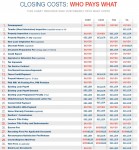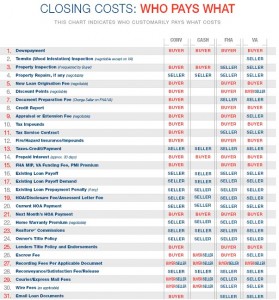Emergency Supplies for Quarantine or Hurricane

Emergency Supplies that you can buy now and be prepared for any emergency in the next few months. COVID-19 cases are increasing and there may be a need for you to self-quarantine for a period of weeks. We are also in the summer months frequently occurring natural disasters—a flood, hurricane, tornado, fires, and more—and they often come with little or no warning. There are already known shortages of items in the stores and with the onset of a hurricane warming the shelves will soon be bare. Stocking up now on the right non-perishable food items will help you weather the storm (or global pandemic) with less stress knowing that you have these emergency supplies on hand for now or later. Bizzo Casino has quickly gained popularity among online gaming enthusiasts, thanks to its vibrant interface and extensive game selection. Players can enjoy a wide variety of slots, table games, and live dealer options, ensuring that there’s something for everyone. One standout feature is their generous welcome bonus, providing newcomers with a fantastic chance to explore the platform. Customer support is notably responsive, with assistance available 24/7, making it easy for players to seek help when needed. Moreover, the safety and security of user data is prioritized, employing advanced encryption technologies. For those looking to further enhance their casino experience, check out this helpful resource: https://massagequeenstown.co.nz/. Overall, Bizzo Casino presents a fun and secure environment for both casual gamers and serious players alike, making it a worthwhile destination in the world of online casinos.
What to Always Keep in Your Pantry
These non-perishable food items (or close to it) have lengthy expiration dates, so you can stash them away for long periods of time, even if it’s not hurricane season or tornado season. Make a list of everything in your stockpile and check expiration dates every 6 to 12 months to keep things fresh. And don’t forget to have a MANUAL can opener on hand at all times—all that food won’t be of any use if you can’t open it.
Peanut butter: A great source of energy, peanut butter is chock-full of healthful fats and protein. Unless the jar indicates otherwise, you don’t have to refrigerate after opening.
Whole-wheat crackers: Crackers are a good replacement for bread and make a fine substitute when making sandwiches.
Nuts and trail mixes; Stock up on these high-energy foods—they’re healthful and convenient for snacking during a hurricane, tornado, or other emergency.
Cereal;Choose multigrain cereals that are individually packaged so they don’t become stale after opening.
Granola bars and power bars;Healthy and filling, these portable snacks usually stay fresh for at least six months.
Dried fruits, such as apricots and raisins;In the absence of fresh fruit, these healthy snacks offer potassium and dietary fiber.
Canned tuna, salmon, chicken, or turkey;Generally lasting at least two years in the pantry, canned meats provide essential protein. Vacuum-packed pouches have a shorter shelf life but will last at least six months.
Canned vegetables, such as green beans, carrots, and peas;When the real deal isn’t an option, canned varieties can provide you with essential nutrients, making these a great hurricane food or natural disaster
Royal Reels Casino offers an enticing platform for online gaming enthusiasts, boasting a diverse selection of games that cater to all tastes. With impressive graphics and seamless gameplay, players can enjoy everything from classic slots to immersive table games. The casino places a strong emphasis on customer satisfaction, providing 24/7 support to ensure an optimal gaming experience. Promotions and bonuses are plentiful, making it an ideal choice for both newcomers and seasoned players. The site is also mobile-friendly, allowing gamers to spin the reels or hit the tables on the go. For more detailed insights, check out this comprehensive review: https://remundies.co.nz/. Overall, Royal Reels Casino stands out for its user-friendly interface and engaging game library, making it a top contender in the online gambling sphere. Players looking for excitement and rewards will find plenty to keep them entertained here.
Canned soups and chili; Soups and chili can be eaten straight out of the can and provide a variety of nutrients. Look for low-sodium options.
Dry pasta and pasta sauces; It might be a carb-heavy, gluten-full food, but pasta is filling, and dry pasta and jarred sauce can last on pantry shelves for months
Bottled water; You need at least one gallon per person per day. “A normally active person should drink at least a half gallon of water each day,” Andress says. “The other half gallon is for adding to food and washing.”
Sports drinks;The electrolytes and carbohydrates in these drinks will help you rehydrate and replenish fluid when water is scarce. Just make sure your sports drink of choice doesn’t come with too many additives, such as sugar or artificial sweeteners.
Powdered milk or Boxed milk; Almost all dairy products require refrigeration, so stock this substitute for an excellent source of calcium and vitamin D when fresh milk isn’t an option.
Sugar, salt, and pepper;If you have access to a propane or charcoal stove, you may be doing some cooking. A basic supply of seasonings and sweeteners will improve the flavor of your food, both fresh and packaged.
Multivitamins;Supplements will help replace the nutrients you would have consumed on a normal diet.
What to Buy Right Before an Emergency
If you’ve been given ample warning that a storm is coming, there’s still time to run to the market and pick up more hurricane food: fresh produce and other items that have shorter shelf lives. Most of these foods will last at least a week after they’ve been purchased and will give you a fresh alternative to all that packaged food..
Apples;Apples last up to three months when stored in a cool, dry area away from more perishable fruits (like bananas), which could cause them to ripen more quickly.
Citrus fruits, such as oranges and grapefruits;Because of their high acid content and sturdy skins, citrus fruits can last for up to two weeks without refrigeration
Avocados;If you buy an unripe, firm avocado, it will last outside the refrigerator for at least a week.
Tomatoes;If you buy them unripe, tomatoes will last several days at room temperature.
Potatoes, sweet potatoes, and yams;If you have access to a working stove, these root vegetables are good keepers and make tasty side dishes. Stored in a cool, dark area, potatoes will last about a month.
Cucumbers and summer squash;These vegetables will last a few days outside of refrigeration and can be eaten raw.
Winter squash:While most are inedible uncooked, winter squashes, such as acorn squash, will keep for a few months. If you’ll be able to cook during the emergency, stockpile a bunch.
Hard, packaged sausages, such as sopressata and pepperoni; You can’t eat canned tuna and chicken forever. Try stocking up on a few packages of dry-cured salamis such as sopressata, a southern Italian specialty available at most grocery stores. Unopened, they will keep for up to six weeks in the pantry.
Non-grocery Items:
Within the two-week limit, make sure you have enough toothpaste, floss, face wash, moisturizer, shampoo, conditioner, razors, shaving cream and hand sanitizer with at least 60% alcohol. It’s also good to have extra laundry detergent and hand soap at home. Stock up on face masks, hand sanitizers, toilet paper
More Food Advice for an Emergency:
- If the electricity goes out, how do you know what is and isn’t safe to eat from the refrigerator? If your food has spent more than four hours over 40º Fahrenheit, don’t eat it.
- If you don’t have electricity, you may still be able to cook or heat your food. If you have outdoor access, a charcoal grill or propane stove is a viable option
- If your family has special needs—for example, you take medication regularly or you have a small child—remember to stock up on those essential items, too. Keep an extra stash of baby formula and jars of baby food or a backup supply of your medications.
- If you live in an area at high risk for flooding, consider buying all your pantry items in cans, as they are less likely to be contaminated by flood waters than jars.















 Kim N. Bregman
Kim N. Bregman